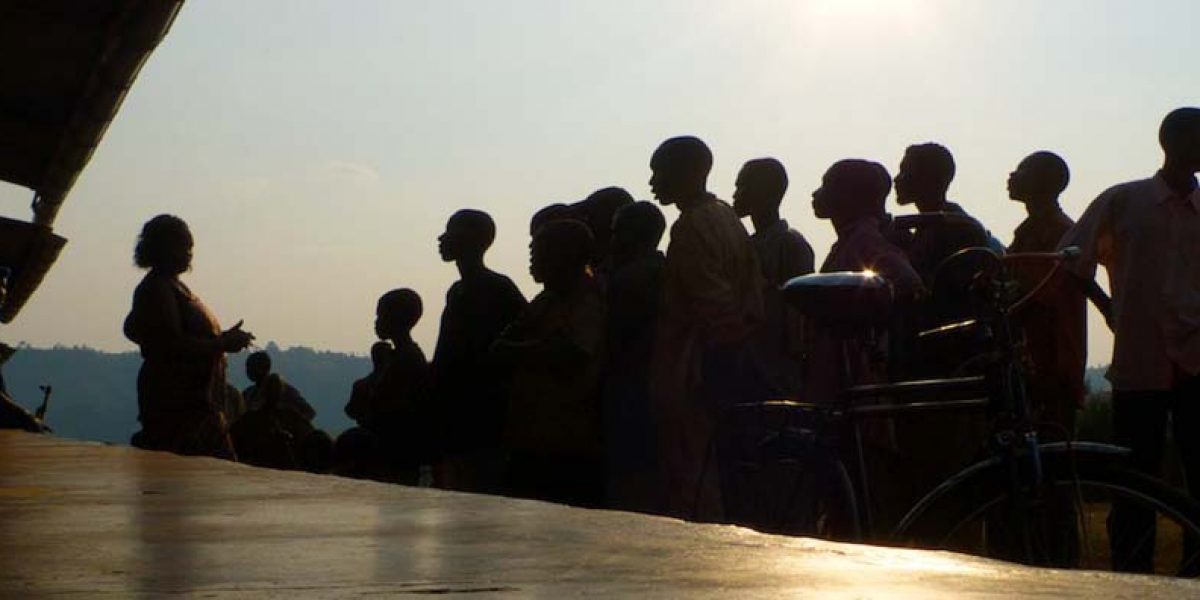Before fleeing over the weekend, President Yahya Jammeh plunged his country into a political crisis whose outcome will resonate far beyond Gambia’s borders. Having conceded victory to opposition candidate Adama Barrow after the 1 December election, Jammeh reversed himself a week later.
For more than two decades, his mercurial figure dominated Gambia, sustained by an admixture of repression and sorcery, such as his outlandish claim of a divinely bestowed right to rule for a billion years and his purported possession of supernatural powers to cure AIDS. Had Jammeh truly sought divine guidance, he might have learnt that his maneuverings after the December vote inveighs dangerously against the wind of change currently blowing across his immediate sub-region.
The reaction of Gambia’s neighbours in the Economic Community of West African States (ECOWAS) was resolute. They demanded that Jammeh hand over power to his democratically-elected challenger. The African Union (AU) also lent its voice to this regional chorus with more conviction and purpose than previously demonstrated. A landmark election in 2015 in Nigeria, West Africa’s powerhouse, ushered in the first peaceful hand-over of power from a ruling party to the opposition, while Ghana’s closely-fought election saw the incumbent concede gracefully to the opposition candidate just a week after the Gambian vote.
As the events in Gambia unfold, three broad lessons stand out for the wider African continent, particularly for South Africa and Nigeria as regional powers with the economic, diplomatic and military wherewithal to ensure democratic processes are respected.
Beefed-up oversight
First, Africa needs a beefed-up supranational mechanism for election oversight. It is time to move beyond the controversy-prone approach which sets much store by one-off election observation missions. These have time and again proved to be grossly inadequate in addressing highly complex and increasingly competitive elections across the region. Africa needs to anticipate and address issues as they arise, right from the setting of the ground rules through to choosing electoral officials, through voter registration to the conduct of polls. Ultimately, better public education is necessary to cement procedures for confirming election results, conceding defeat and expediting credible appeal processes. The perennial spectre of opposing candidates simultaneously declaring victory after elections, again demonstrated in Gabon’s highly contentious presidential election of 2016, is a recipe for confusion and unrest.
Relevant lessons from Africa’s more successful democratic experiments need to be drawn up to formulate clearer guidelines complete with specified sanctions for those impugning these rules. ECOWAS has made impressive progress in codifying important electoral norms over the past two decades, including the peaceful transfer of power after an election. Yet this needs to be matched by more practical efforts to standardise rules on a regional level, to help to reduce the scope for manipulation.
For those doubting the practicality of this, the same doubt was expressed about the possibility of an ECOWAS protocol on democracy and good governance just two decades ago. The truth is that Africa must reduce room for usurpers of the democratic will. Indeed anyone in clear breach should automatically cease to enjoy recognition from ECOWAS and the AU.
Closing ranks
Second, Africa’s gradual but steady consolidation of democratic norms in recent years shows that the responsibility for more accountable forms of governance lies squarely with the people. As people across Africa rise up in defence of good governance, they will stand a better chance if regional coherence and solidarity prevail.
The threat by Nigeria, Senegal and other regional states to militarily remove the recalcitrant Jammeh from power, with the blessing of the UN Security Council, should be commended. Shared norms around elections need to be collectively enforced. Whilst recognising the inherent dangers of regime change on a whim, this more muscular approach is needed to confront regimes that attempt to subvert the people’s democratic will. The prevailing chaos in Burundi, the DRC and elsewhere bear this out.
Joint Nigeria-South Africa action
Third, we need more purposeful leadership and co-operation by Africa’s two biggest democracies on the questions of electoral values and norm-setting. Following the post-election crisis in the Ivory Coast in 2010, Nigeria supported the victorious opposition candidate, Alassane Ouattara, while South Africa backed the incumbent, Laurent Gbagbo. Such a divide must be more systematically banished from Africa’s future international relations.
The Nigeria–South Africa bi-national commission rightfully focuses on issues of a bilateral nature, but broader common goods such as peaceful elections must also become a core component of the dialogue. The forum can become a useful clearing house for contentious issues such as elections, in which the respective national positioning may create a gulf and make concerted action difficult.
Had Yahya Jammeh had his way, this would have emboldened many would-be usurpers of the ballot across the African continent. Ominously, Uganda’s President, Yoweri Museveni is positioning his son for dynastic succession. Equatorial Guinea’s Nguema Obiang hangs on to power whilst consistently ‘winning’ stratospheric proportions of votes cast in bogus elections, and he may also push his son, recently appointed vice-president, to the top of the presidential election ballot. The DRC’s Joseph Kabila has also clung on to power unconstitutionally, blatantly disregarding the expiration of his presidential mandate last December.
The call needs to ring out from Pretoria, through Addis Ababa to Abuja and all the way to Dakar that the continent is determined to safeguard the democratic right of Africa’s people, from small Gambia in the West, to the giant DRC now tugging at the continent’s heart.
This article was first published in The Star on 25 January 2017.








